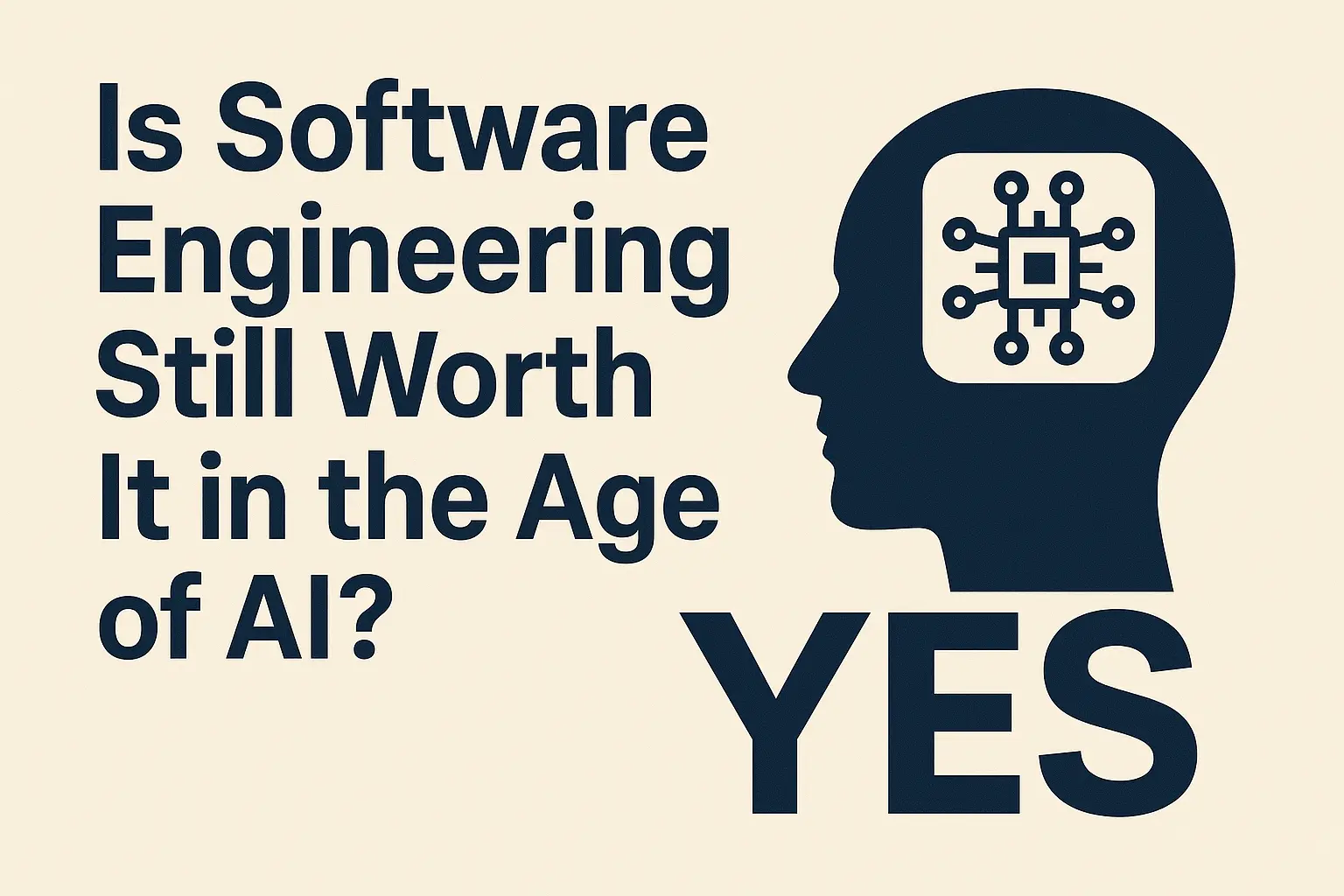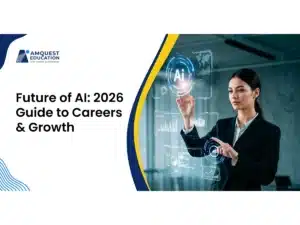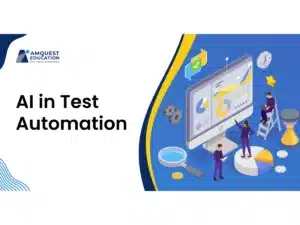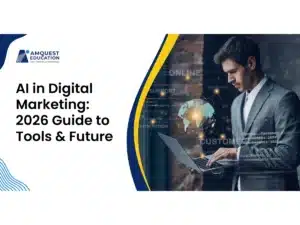Introduction
The rapid advancement of artificial intelligence, particularly Agentic AI and Generative AI, is fundamentally transforming the software engineering landscape. As autonomous systems increasingly generate code, test software, and manage deployments, many professionals ask: Is traditional software engineering still a viable and valuable career? The answer is unequivocally yes. Rather than rendering software engineers obsolete, AI technologies are expanding their roles into more strategic, technical, and interdisciplinary domains.
This article explores the evolving intersection of software engineering and AI, highlighting current technologies, engineering best practices, ethical considerations, and career pathways that underscore the enduring and growing relevance of software engineering in the AI era. For professionals seeking to excel, enrolling in a GenAI engineering course in Mumbai can provide essential skills to navigate this transformation effectively.
Understanding Agentic and Generative AI in Software Engineering
Agentic AI consists of autonomous systems capable of perceiving complex environments, making context-aware decisions, and acting independently toward specified goals with minimal human supervision. These agents often employ reinforcement learning, planning algorithms, and multi-agent coordination to navigate dynamic scenarios.
Generative AI focuses on creating new content, code, text, images, or audio, using large-scale models such as large language models (LLMs) and diffusion models. These models synthesize outputs that can accelerate software development workflows, automate documentation, and generate test cases.
Together, these AI paradigms are reshaping software engineering by shifting AI’s role from a mere assistant to a collaborative partner and co-creator. Early AI-assisted coding tools like GitHub Copilot enhanced productivity by suggesting lines of code, but today’s autonomous agents can orchestrate complex development pipelines, from code generation and testing to deployment and monitoring.
However, building, integrating, and safely operating these AI-driven systems requires sophisticated engineering capabilities. Software engineers must now blend traditional software principles with expertise in AI model behavior, data pipelines, and system orchestration to deliver robust, scalable, and compliant solutions. Completing a best Agentic AI course equips engineers with the necessary theoretical and practical knowledge to master these challenges.
Modern Tools, Frameworks, and Deployment Strategies
The complexity of AI-powered software systems demands specialized frameworks and infrastructure, including:
- LLM Orchestration Platforms: Frameworks such as LangChain, Haystack, and Microsoft’s Semantic Kernel enable developers to chain multiple LLM calls, integrate external data sources, and build agentic workflows. These platforms abstract low-level API interactions, allowing engineers to focus on application-specific logic and modular workflow design.
- Autonomous Agents and Multi-Agent Systems: Open-source projects like AutoGPT, BabyAGI, and LangChain Agents demonstrate how autonomous agents can self-direct tasks, manage dependencies, and optimize workflows with minimal human intervention. These systems incorporate planning, memory, and environment interaction modules, exemplifying next-generation Agentic AI.
- MLOps and AI Lifecycle Management: Managing AI models, especially generative ones, requires robust MLOps pipelines covering data versioning, continuous integration/deployment (CI/CD), model retraining, monitoring, and governance. Tools such as MLflow, Kubeflow, Seldon Core, and emerging platforms like WhyLabs and Fiddler AI provide capabilities for scalable, reliable, and auditable AI deployments. Mastery of MLOps and AI lifecycle management is critical for engineering teams to maintain operational excellence.
- Cloud-Native AI Infrastructure: Software engineers leverage Kubernetes, serverless platforms, and GPU-accelerated cloud instances to meet the demands of AI workloads. Autoscaling, load balancing, and container orchestration ensure high availability and cost efficiency for AI applications.
- Security, Compliance, and Trustworthiness: With increasing regulatory scrutiny, frameworks like Open Policy Agent (OPA) enforce policy compliance. Engineers integrate explainability tools (LIME, SHAP), bias detection frameworks, adversarial robustness measures, and privacy-preserving techniques such as differential privacy to build trustworthy AI systems. These tools and strategies empower engineers to deliver scalable, maintainable, and compliant AI solutions that meet stringent business and regulatory requirements. Educational programs like the GenAI engineering course in Mumbai often cover these advanced tools and methodologies, preparing professionals for real-world AI engineering challenges.
Engineering Best Practices for Scalable and Reliable AI Systems
Developing AI systems at scale transcends traditional software engineering challenges. Key engineering tactics include:
- Modular and Microservice Architectures: Designing AI systems with loosely coupled components, data ingestion, model inference, feedback loops, and user interface, facilitates independent updates, testing, and debugging, improving maintainability.
- Robust Testing Beyond Code: AI systems require validation not only of code correctness but also model performance, fairness, and robustness. Techniques include bias audits, adversarial testing, and scenario-based evaluations to prevent failures and unintended consequences in production.
- Observability and Real-Time Monitoring: Implementing comprehensive monitoring for model accuracy, latency, data drift, and system health is critical. Tools such as Prometheus, Grafana, and custom dashboards enable early detection of anomalies and proactive issue resolution.
- Continuous Model Retraining and Automation: Automated pipelines retrain models on fresh data to maintain accuracy and relevance. CI/CD for AI models incorporates model validation and deployment gating to ensure safe rollouts.
- Resource and Cost Optimization: Efficient GPU utilization, model quantization, and batching techniques reduce inference costs while maintaining responsiveness.
- Fail-Safe and Fallback Mechanisms: Designing fallback strategies, such as default rule-based systems or human-in-the-loop interventions, ensures resilience when AI components underperform or fail.
These practices illustrate how software engineering principles adapt to AI’s unique challenges, reinforcing the indispensable role of skilled engineers in delivering reliable AI systems. Pursuing a best Agentic AI course can deepen understanding of these engineering best practices and their application in complex AI projects.
Security, Compliance, and Ethical AI Engineering
AI introduces novel risks including bias, privacy violations, and unpredictable behavior. Software engineers play a crucial role in mitigating these risks through:
- Secure Coding and Data Protection: Implementing encryption, access controls, and secure data handling safeguards sensitive information used by AI models.
- Regulatory Compliance: Embedding compliance checks for GDPR, HIPAA, and emerging AI-specific regulations into development workflows ensures legal adherence and reduces organizational risk.
- Explainability and Transparency: Integrating explainability frameworks helps stakeholders understand AI decisions, a necessity in regulated domains like finance, healthcare, and government.
- Ethical AI Practices: Engineers collaborate with ethicists and business leaders to identify and mitigate bias, ensure fairness, and align AI behaviors with organizational values and societal norms.
- AI Governance and Auditing: Establishing audit trails, version control, and model documentation supports accountability and continuous improvement.
These disciplines are foundational to trustworthy AI deployments and highlight software engineering’s expanded remit in the AI era. Knowledge of MLOps and AI lifecycle management frameworks often includes modules on AI ethics and compliance, reflecting their critical importance.
Cross-Functional Collaboration and Organizational Impact
AI projects succeed through tight collaboration among software engineers, data scientists, product managers, and business stakeholders:
- Translating Research into Production: Engineers operationalize data science prototypes into scalable, maintainable software, bridging gaps between experimentation and deployment.
- Iterative Development: Continuous feedback loops based on user data and model performance metrics enable rapid iteration and refinement.
- Domain Expertise Integration: Business stakeholders provide critical context shaping AI system requirements, evaluation criteria, and deployment strategies.
- DevOps and MLOps Synergy: Cross-disciplinary teams establish workflows that integrate software engineering practices with AI operations, streamlining deployment, monitoring, and incident response.
This collaborative model ensures AI solutions are practical, impactful, and aligned with strategic business goals. Professionals enrolling in a GenAI engineering course in Mumbai often find these collaboration techniques integral to successful AI project delivery.
Career Trends and Skills for AI-Driven Software Engineering
Despite economic fluctuations, software engineering remains a robust career choice, particularly for professionals adept at AI technologies. Industry data forecasts approximately 17% growth in software engineering roles through 2033, with high demand in AI-centric fields such as finance, automation, cybersecurity, and healthcare.
Key skills for AI-driven software engineers include:
- Proficiency in Python and cloud platforms (AWS, Azure, GCP).
- Expertise in LLM orchestration frameworks (LangChain, Semantic Kernel).
- Mastery of MLOps tools (Kubeflow, MLflow) and CI/CD pipelines.
- Strong foundation in security best practices and compliance standards.
- Ability to collaborate cross-functionally and communicate effectively with data scientists and business teams.
Career roles are diversifying beyond traditional software engineering to include AI architect, MLOps engineer, and AI ethics engineer. Gaining certification through a best Agentic AI course or a GenAI engineering course in Mumbai can significantly enhance career prospects and readiness for these emerging roles.
Case Study: Engineering the Deployment of OpenAI’s GPT-4
OpenAI’s GPT-4 deployment illustrates the integration of agentic and generative AI into industrial-scale software engineering:
- Scalability: Handling millions of inference requests required cloud-native infrastructure with autoscaling, load balancing, and GPU acceleration.
- Latency Optimization: Techniques such as model quantization and batching improved response times, enhancing user experience.
- Security and Compliance: Strict access controls, data privacy policies, and audit mechanisms ensured enterprise-grade security and regulatory compliance.
- Cross-Disciplinary Teams: Software engineers, AI researchers, and product managers collaborated closely to tailor GPT-4’s capabilities to diverse business applications.
- Monitoring and Feedback: Continuous monitoring of model outputs and user interactions enabled iterative improvements and retraining.
This case underscores how advanced software engineering practices underpin successful AI system deployment and operation at scale. Many of these practices align closely with curriculum topics in MLOps and AI lifecycle management programs.
Actionable Strategies for Software Engineers
- Commit to Continuous Learning: Stay current with AI frameworks, orchestration tools, MLOps, and security practices to maintain competitive advantage.
- Develop Cross-Functional Communication: Cultivate skills to collaborate effectively with data scientists, product managers, and business stakeholders.
- Prioritize Reliability and Security: Embed robust testing, monitoring, and compliance from project inception.
- Design Modular, Scalable Architectures: Build AI systems that can evolve with minimal disruption.
- Leverage AI Automation Judiciously: Use AI to automate repetitive tasks while maintaining human oversight for critical decisions.
- Gain Practical Experience: Build a portfolio of real AI projects demonstrating end-to-end system design, deployment, and monitoring.
- Consider Specialized Training: Programs like the GenAI engineering course in Mumbai and best Agentic AI courses offer comprehensive, hands-on learning tailored to today’s AI-driven market, positioning professionals ahead of peers.
Frequently Asked Questions (FAQs)
- Q: Is software engineering a sustainable career in the age of AI?
- A: Yes. Software engineering roles are evolving with AI, requiring new skills but offering expanding opportunities in AI system design, deployment, and maintenance.
- Q: How does AI impact software engineering roles?
- A: AI automates routine coding but increases demand for engineers skilled in AI orchestration, MLOps, and secure, scalable system design.
- Q: What skills should software engineers develop to work effectively with AI?
- A: Key skills include Python, cloud computing, LLM orchestration frameworks, MLOps, security best practices, and cross-disciplinary collaboration.
- Q: Are AI systems replacing software engineers?
- A: No. AI tools augment engineers but cannot replace the critical thinking, architectural design, and ethical considerations that human engineers provide.
- Q: Which industries are driving demand for AI-savvy software engineers?
- A: Finance, automation, healthcare, cybersecurity, and enterprise software sectors are experiencing strong growth in AI-related engineering roles.
Conclusion
Software engineering is not only still worth it in the era of Agentic and Generative AI, it is more essential than ever. The rise of AI has expanded the engineer’s role from coder to architect, operator, and ethical steward of AI systems. Mastery of emerging frameworks, deployment techniques, and best practices enables engineers to build powerful, scalable, and trustworthy AI solutions that generate tangible business impact.
For professionals seeking to thrive, embracing continuous learning, cross-functional collaboration, and ethical engineering is paramount. Educational programs like Amquest Education’s Software Engineering, Generative AI and Agentic AI course, as well as other best Agentic AI courses and GenAI engineering courses in Mumbai, equip practitioners with the knowledge and skills to lead the AI-powered future.
The future of software engineering is not AI versus humans; it is AI with humans, engineers who design, deploy, and govern AI responsibly and effectively. This evolving landscape offers unparalleled opportunities for growth and innovation. Now is the time to seize them.






